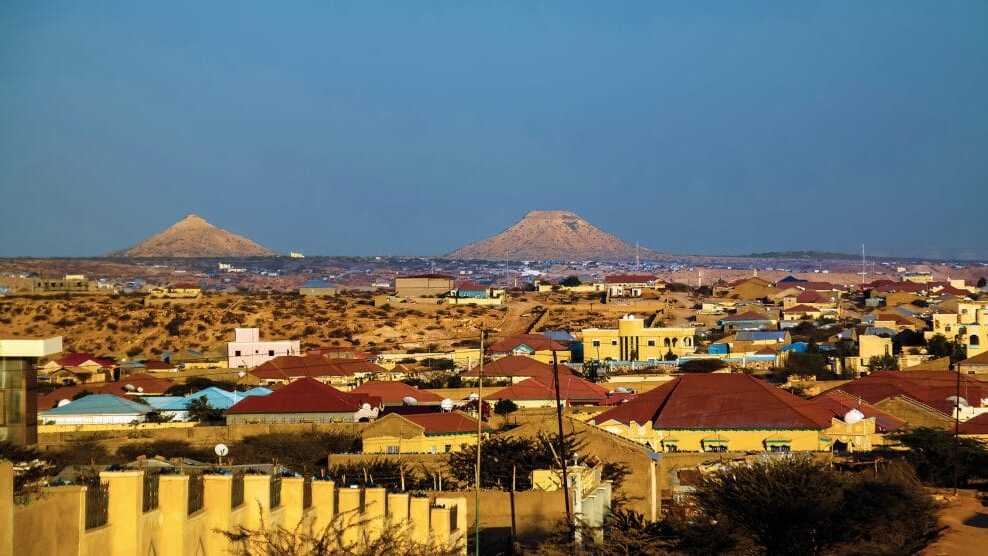
Somalia vs Ethiopia: Diplomatic war at the UN Council
Tensions have escalated between Somalia and Ethiopia, with a new accusation full of meaning. During his speech at the United Nations General Assembly, Somali Prime Minister Hamza Abdi Barre threw a spanner in the works by denouncing Addis Ababa's attempts to annex Somali territories. The sticking point? Maritime access via Somaliland, which Ethiopia wants to secure at all costs. Mogadishu is crying foul and sees it as an illegal maneuver.
This toxic climate, conducive to escalation, comes at the worst possible time for the Horn of Africa region. Somalia accuses Ethiopia of playing with fire, stoking tensions that only benefit terrorist groups like Al-Shabaab. According to the Prime Minister, these Ethiopian provocations undermine efforts for peace and cohesion in Somalia. Barre’s strong speech aimed to reiterate that Somali sovereignty is not negotiable, and that any attempt at interference will be fought diplomatically and militarily, if necessary.
Historical background: the Somaliland puzzle
One of the roots of the current conflict lies in the complex situation of Somaliland, a de facto autonomous region still claimed by Somalia. This territory, located in the north of Somalia, has signed an agreement with Ethiopia to guarantee the latter direct access to the Red Sea. For Addis Ababa, deprived of a seafront since 1993, this agreement is strategic. For Mogadishu, on the other hand, it is nothing more and nothing less than a flagrant violation of its territorial integrity.
Ethiopia in action?
Under Abiy Ahmed, Ethiopia has made numerous efforts to secure a prominent place on the Horn of Africa economic stage. However, these maneuvers raise the idea that Addis Ababa has expansionist designs on certain strategic regions. The agreement with Somaliland crystallizes tensions, and suggests that Ethiopia, under the cover of economic interests, could redraw the borders of the region.
A multifaceted crisis
This crisis is not just a territorial dispute. It reveals a deeper rivalry between two neighbors vying for influence in a volatile region. In the background, regional powers such as the United Arab Emirates and Turkey are watching closely, each with its own interests in the region. The crisis could also push international actors, including the United Nations, to intervene to prevent a wider conflagration.
What future for the region?
The tension between Somalia and Ethiopia comes at a time when both countries are already weakened by internal conflicts and economic difficulties. The Horn of Africa region, crucial to global maritime trade, risks entering a new phase of instability. Bilateral relations between these two African giants appear irreversibly damaged, unless an external actor imposes serious mediation.



4 comments
Bitcoin Recovery Testimonial
After falling victim to a cryptocurrency scam group, I lost $354,000 worth of USDT. I thought all hope was lost from the experience of losing my hard-earned money to scammers. I was devastated and believed there was no way to recover my funds. Fortunately, I started searching for help to recover my stolen funds and I came across a lot of testimonials online about Capital Crypto Recovery, an agent who helps in recovery of lost bitcoin funds, I contacted Capital Crypto Recover Service, and with their expertise, they successfully traced and recovered my stolen assets.
Their team was professional, kept me updated throughout the process, and demonstrated a deep understanding of blockchain transactions and recovery protocols. They are trusted and very reliable with a 100% successful rate record Recovery bitcoin, I’m grateful for their help and highly recommend their services to anyone seeking assistance with lost crypto.
Contact: Capitalcryptorecover@zohomail.com
Phone CALL/Text Number: +1 (336) 390-6684
Email: Recoverycapital@fastservice.com
Website: https://recovercapital.wixsite.com/capital-crypto-rec-1
Marcus Henderson
Bitcoin Recovery Testimonial
After falling victim to a cryptocurrency scam group, I lost $354,000 worth of USDT. I thought all hope was lost from the experience of losing my hard-earned money to scammers. I was devastated and believed there was no way to recover my funds. Fortunately, I started searching for help to recover my stolen funds and I came across a lot of testimonials online about Capital Crypto Recovery, an agent who helps in recovery of lost bitcoin funds, I contacted Capital Crypto Recover Service, and with their expertise, they successfully traced and recovered my stolen assets.
Their team was professional, kept me updated throughout the process, and demonstrated a deep understanding of blockchain transactions and recovery protocols. They are trusted and very reliable with a 100% successful rate record Recovery bitcoin, I’m grateful for their help and highly recommend their services to anyone seeking assistance with lost crypto.
Contact: Capitalcryptorecover@zohomail.com
Phone CALL/Text Number: +1 (336) 390-6684
Email: Recoverycapital@fastservice.com
Website: https://recovercapital.wixsite.com/capital-crypto-rec-1
Marcus Henderson
BITCOIN RECOVERY IS VERY MUCH REAL AM A LIVING TESTIMONY
Good day everyone on the internet. Do you require assistance getting back your lost or stolen ETH, Bitcoin, or other cryptocurrency? Many people have written about how THE HACKANGELS RECOVERY EXPERT helped them recover their cryptocurrency. I invested $1.3 million into a cryptocurrency platform. I visited different web pages and read a lot of reviews and testimonies about THE HACKANGELS RECOVERY EXPERT. I willingly decided to give them a try and it was the best choice I’ve ever made. And the job was done within 48 hours. I feel so fortunate to have been able to get the right team otherwise I have no idea what could’ve become of me. Their exceptional skills and intelligence make them one of the best cyber hackers in the industry. With their expertise in cryptocurrency and Bitcoin recovery, they have assisted numerous individuals in recovering their lost funds. I promised to inform everyone about their service. If I don’t share my testimony then I will be selfish and ungrateful. You can also get in touch with them through their hotline:
WhatsApp (+1(520)200-2320 ), or shoot them an email at (support@thehackangels.com) They also have a great website at (www.thehackangels.com)
If you’re in London, you can even visit them in person at their office located at 45-46 Red Lion Street, London WC1R 4PF, UK. They’re super helpful and really know their stuff! Don’t hesitate to reach out if you need help. I recommend them as a genuine hacker
Bruno Jayvee
BITCOIN RECOVERY IS VERY MUCH REAL AM A LIVING TESTIMONY
Good day everyone on the internet. Do you require assistance getting back your lost or stolen ETH, Bitcoin, or other cryptocurrency? Many people have written about how THE HACKANGELS RECOVERY EXPERT helped them recover their cryptocurrency. I invested $1.3 million into a cryptocurrency platform. I visited different web pages and read a lot of reviews and testimonies about THE HACKANGELS RECOVERY EXPERT. I willingly decided to give them a try and it was the best choice I’ve ever made. And the job was done within 48 hours. I feel so fortunate to have been able to get the right team otherwise I have no idea what could’ve become of me. Their exceptional skills and intelligence make them one of the best cyber hackers in the industry. With their expertise in cryptocurrency and Bitcoin recovery, they have assisted numerous individuals in recovering their lost funds. I promised to inform everyone about their service. If I don’t share my testimony then I will be selfish and ungrateful. You can also get in touch with them through their hotline:
WhatsApp (+1(520)200-2320 ), or shoot them an email at (support@thehackangels.com) They also have a great website at (www.thehackangels.com)
If you’re in London, you can even visit them in person at their office located at 45-46 Red Lion Street, London WC1R 4PF, UK. They’re super helpful and really know their stuff! Don’t hesitate to reach out if you need help. I recommend them as a genuine hacker
Bruno Jayvee
Leave a comment
This site is protected by hCaptcha and the hCaptcha Privacy Policy and Terms of Service apply.